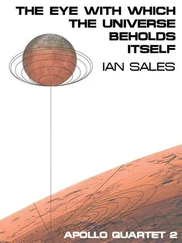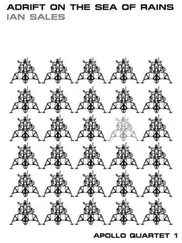She glances at her watch. It’s after four, they’ve been here since lunch-time, no doubt the tour would not have taken so long if Ginny hadn’t insisted on asking their guide how everything worked. He seemed as fascinated by her interest as she was by his explanations.
What about the launch pads? she asks. Can we see one of those?
Not with the Apollo 11 stack on the pad, hon, maybe another time.
Walden insinuates an arm around her waist. I got to get back to work, he says. Tomorrow maybe I’ll take you round the MSOB. I can show you the altitude chambers.
He gives her a squeeze and steers her about, toward the stairwell in the centre of the roof. I’ll come to the hotel this evening, he adds, we can have dinner in the restaurant. Another squeeze. Maybe I’ll even stay over.
I’d like that, she replies.
In the VAB parking lot, no longer wearing hard hats, Ginny glances back at the building and is struck anew by its enormous size. Science fiction is all about scale, vast distances and deep time, made manageable, made human . All those parsecs and light years, those millions and billions of years, rendered conceivable . And yet real space exploration is huge too, perhaps just a little bit too large to be believed, even when standing right next to it. The Saturn V seen up close is… monstrous .
And the distances! How obliviously science fiction skates over the vastness of space— a quarter of a million miles to the Moon, three days travel, they say the guys in Apollo 10 travelled the fastest of any human beings, hitting 24,791 mph during their return from the Moon. And a trip to Mars… It almost doesn’t bear thinking about: millions of miles, months and months of travel, to stand on the surface of a world where a man cannot survive without science, without engineering… This is what Ginny wants to put into her science fiction.
She has stood on the flight line at Edwards, she has seen Boeing B-52 Stratofortress bombers and marvelled at their size, been astonished that such a large and substantial aircraft—length 159 feet 4 inches, wingspan 185 feet, max takeoff weight 488,000 lbs!—could ever take to the air. But she has seen them fly, thundering past, no more than a few hundred feet above the dry lake, trailing smoke, the roar of their eight turbofan engines deafening.
Ginny knows about sense of wonder and suspension of disbelief, they are the tools of her trade. She tries to deploy both in her stories, whether she succeeds is open to debate. Sometimes she speculates if applying those concepts to real life, the quotidian and the prosaic, in some way devalues them. After all, she has witnessed much which would seem to apply—not just the sight of a B-52 taking off, but the ways of men, of her husband, the selective blindness and pigheadedness. The efforts she must go to in order to be noticed, the work she must put into the house so it fits Walden’s idea of a home…
Ginny slides into Walden’s car, and as soon as she’s shut the door, he pulls out of the parking space. I’ll take you back to your car, he says, I still got stuff to do.
But you’ll come to the hotel later?
Sure, I said so, didn’t I? He looks across at her. How long are you planning on staying, hon?
She ignores his gaze and stares out of the passenger window at the passing scenery, which appears no more interesting at ground level than it did 526 feet up in the air. I don’t know, she replies. A couple of days, I suppose.
When you’ve seen everything at the Cape, there’s the beach, Walden suggests.
Ginny is not a beach person, and spending hours lying on hot sand beneath the Florida sun, in a bikini or a one-piece, that’s not something she’s ever considered a worthwhile pastime. She came to Cocoa Beach to see more of the space program—and her husband of course—not to sunbathe.
Maybe, Ginny tells her husband.
Walden Eckhardt
From Wikipedia, the free encyclopedia
Walden Jefferson “Wal” Eckhardt(born March 8, 1932) is a retired United States Air Force brigadier general and a former NASA astronaut. As the lunar module pilot for Apollo 15 in 1971, he became the eighth person to walk on the Moon.
Biography
Early life and education
Eckhardt was born in Grand Junction, Colorado, where he graduated from Central High School in 1950. After a year spent working at Walker Field Airport, where he earned his pilot’s licence, he studied for and received a Bachelor of Science in Aeronautical Engineering at San Diego State University in 1955.
Military career
Eckhardt joined the United States Air Force on graduation from San Diego State University. After a year at flying school, he was sent to George Air Force Base, California, for advanced training on the North American F-86 Sabre fighter jet, before being assigned in 1959 to the 415 thInterceptor Squadron stationed at Ramstein Air Force Base in Germany. In 1962, he was transferred to the Experimental Test Pilot School at Edwards Air Force Base, California. On graduation, he remained at Edwards as an instructor before attending the Aerospace Research Pilot School in 1962. After graduating from ARPS, he spent a year as an instructor and was then assigned to the Fighter Test Group.
NASA career
In April 1966, Eckhardt was one of the nineteen selected for NASA’s fifth group of astronauts. In 1968, he served as a member of the support crew for Apollo 10, the first mission to carry the full Apollo stack to the Moon and the dry run for the first manned Moon landing. He then served as backup lunar module pilot for Apollo 12, the second Moon landing mission, commanded by Charles ‘Pete’ Conrad.
Apollo 15
Between July 26 and August 7, 1971 — as the Apollo 15 Lunar Module Pilot (LMP) — Eckhardt logged 295 hours and 11 minutes in
space. His extra-vehicular activity (EVA) on the Moon’s surface
amounted to 18 hours and 35 minutes of the mission time (an additional 33 minutes was used to do a stand-up EVA by opening the LM’s docking hatch to survey the surroundings and take photographs). Eckhardt and David Scott’s mission was more science-based than previous missions, which meant that they received intensive geological training to meet the demanding nature of the J-Mission profile. This extra training is credited with allowing them to make one of the most important discoveries of the Apollo era, the Genesis Rock.
Apollo 15 landed in the Moon's Hadley-Apennine region, noted for its mountains and rilles. As a J-Mission, they would spend more time on the moon than previous missions, to allow for three EVAs. As well, Eckhardt was the first automobile passenger on the Moon as Scott drove the Lunar Roving Vehicle (LRV) carried along for this mission in the Lunar Module (LM) Falcon's Descent Stage. Scott and Eckhardt’s stay on the Moon was just under three days at 66 hours and 54 minutes.
Post-NASA career
After Apollo 15, Eckhardt remained with NASA after being assigned to the Skylab program. However, once the planned fifth Skylab mission was cancelled Eckhardt left NASA, and retired from the United States Air Force, on September 1, 1975. He held a number of positions with aerospace companies before retiring in 1992.
Personal life
Eckhardt married his wife, Virginia, shortly after she graduated from San Diego State University in 1958. They have one daughter, Suzy, born 1973. The pair divorced in 1979.
Organizations
He was a member of the Air Force Association and the Society of Experimental Test Pilots.
Awards and Honors
• Air Force Distinguished Service Medal
Читать дальше












